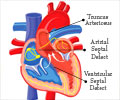People with higher levels of thyroid hormones may be more likely to develop cardiovascular conditions such as heart attacks, strokes.

‘Atherosclerosis -- hardening and narrowing of the arteries -- silently and slowly blocks arteries, putting blood flow at risk, thus increasing the risk of heart diseases.’





"Coronary heart disease and stroke remain a leading cause of mortality worldwide, despite advances in prevention and treatment. Therefore, identifying additional modifiable risk factors for atherosclerosis of major importance," said lead author Arjola Bano, doctoral student at Erasmus University in Netherlands. The findings revealed that higher free thyroxine (FT4) levels -- hormones produced by the thyroid gland are primarily responsible for regulation of metabolism -- in patients elevated their risk of atherosclerotic morbidity and mortality.
"The study suggests that thyroid hormone measurement can help identify individuals at risk for atherosclerosis and may have future implications for the prevention of atherosclerotic morbidity and mortality," Bano added.
For the study, presented at the annual meeting ENDO 2017 in Orlando, US, the team included 9,231 people with an average age of 64.7 years.
Bano and team explored the association between thyroid function and subclinical atherosclerosis, atherosclerotic events (fatal and nonfatal coronary heart disease or stroke) and atherosclerotic mortality (death from coronary heart disease, cerebrovascular or other atherosclerotic disease).
Advertisement
Over a median follow up of 8.8 years, 1,130 atherosclerotic events and 580 atherosclerotic deaths occurred in the study population.















